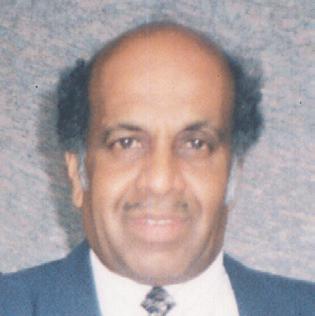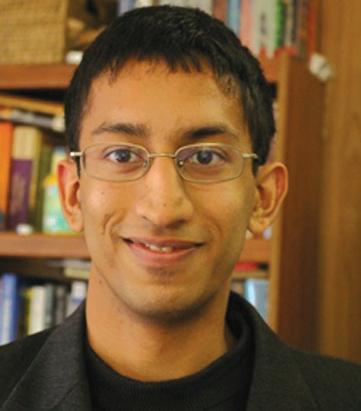
5 minute read
India needs less government, not more
from 2010-06 Melbourne
by Indian Link
their generous social welfare systems (such as aged pensions and hospital care), European countries are living beyond their means.
Europe has had a tumultuous recorded history with wars and rivalries. There was intense rivalry and conflict between the major powers of Europe during colonial times, with several West European powers fighting over colonial possessions like Portugal, France and Britain over India and Portugal, Holland and Britain over Sri Lanka.
European rivalries caused two devastating World Wars in Europe and Indian troops, led by the British, were involved in both wars. For example, during World War II Indian troops landed in southern Italy. Australians likewise, fought alongside British forces in those wars. What happens in Europe affects India and Australia and turmoil in Europe has adverse consequences for both India and Australia.
Europe can be divided into northern and southern Europe, particularly with regard to climatic conditions; and into western and eastern Europe on the basis of people and history. Northern Europe has been generally more prosperous and Southern Europe less so, the latter including the heavily in debt “PIGS” (Portugal, Italy, Greece and Spain). Western and eastern Europe are historically contrasting, as major western European powers are still prosperous whilst economically struggling eastern Europe has only recently been freed from its communist history.
The European Union was never a Union of equals. Even before the Union was formed, Spanish and Portuguese workers looked for jobs in German industries.
Citizens of the more prosperous nations of western Europe have been able to holiday and buy properties in cheaper nations like Spain and Portugal, which resulted in a financial “invasion” which adversely affected the people of those countries.
When the European Union enlarged eastwards into the former Eastern Bloc, those countries demanded aid and investment to rebuild their economies. Western Europe thus became their banker. East European workers now have the right to enter West European countries and compete with locals for jobs. This is happening in Britain. Sub-continentals and Australians living in Britain face this competition as restrictions on the entry of new Commonwealth migrants increase. Britain is moving more and more towards Europe and away from the Commonwealth, whilst Commonwealth countries search for trading partners elsewhere.
The questions arise: Was creating the European Union, from very different countries, a good idea? And, more so, was the creating the Euro, from very different economies, ever a feasible concept? These questions are now plaguing the financial markets and currencies of the world.
BY SUKRIT SABHLOK
The lifting of millions of Indians out of poverty after the country’s economic reforms in 1991 should have delivered a decisive blow to those who argue that capitalism exploits the poor. Thanks to deregulation, there has been a significant rise in India’s standard of living during the past 15 years. Unfortunately, the same arguments against the free-market persist. Yet the problem is the government, not the market.
If governments faced the same discipline that private corporations are subjected to, the next election would result in all of India’s politicians being voted out. In spite of grandiose promises, hardly anyone doubts that India continues to remain near the top of the world in corruption and inefficiency. The sad reality is that India has fallen behind East Asian nations. The subcontinent holds the dubious distinction of having the world’s largest number of poor people, despite crores of rupees spent to “stimulate” development.
The reforms of 1991 allowed many a chance at life in the middle-class. For the average person, relaxation of investment laws has meant access to a wider variety of goods and services at cheaper prices. In the past Indians faced restrictions on importing of foreign cars, and were forced to buy inferior local models such as the Ambassador. Now they have the freedom to choose a Toyota, a Honda or even a BMW, if they so desire. The influx of new brands has meant more productive jobs, as foreign companies have set up factories locally.

Many people shrug their shoulders at the dismal living standards in India and resign themselves to thinking, that’s “just the way things are”. This attitude, although understandable, is something to be discouraged. Especially now when the government-caused financial crisis has made Indians a great deal poorer, the urgent need is to examine why it is that –60 years after independence – Bharat still remains a Third World nation.
The answer boils down to this: petty bureaucrats and gangster politicians have ruined India. They are the reason why this diverse nation of 1 billion isn’t yet an “Asian tiger”. Only if we honestly confront the problems India faces can we devise the proper solutions.
For sure, India’s economy is galloping along at about 8% per year. This is a significant improvement from the so- called “Hindu” rate of 3.5% before 1991. However, there is also much that the growth figures conceal.
Consider, for instance, the fact that no government in India has been able to guarantee a reliable supply of electricity, water or gas. Roads (including many national highways) are in a pitiful state. Ports constantly experience bottlenecks, and train stations and airports are run-down. Underneath the statistics lies a hot-bed of infrastructure and governance problems. Although economic growth is progressing, it is hardly based on sound foundations.
The train system is a good example. Indian Railways, a government company, owns and operates most of the rail network. Indian Railways holds a virtual monopoly, so there’s no incentive for it to improve the quality of its services. Competition is a wonderful thing: it can push businesses to serve the consumer better by lowering prices and improving quality. Yet when government restricts competition, as in the case of India’s railways, the result is inefficiency and a lack of concern for what the customer thinks.
The story is much the same across a whole range of industries in India. Whereas developed nations have privatised some of their utilities (for example, electricity) and opened up markets to competition, the governments of India remain wedded to power and refuse to give up control. But instead of everything being owned by the government, it would make a lot more sense to let the people of India run their own businesses.
The mistake socialists make is to equate ownership by the government with ownership by “the people”. That is a fallacy. The government does not equal “the people”; to the contrary, it is made up of an elite group that often selfishly pursues their own interests. How many times have we heard of politicians lining their Swiss bank accounts with money illegally stolen from taxpayers? This pervasive corruption is an indictment on the theory that politicians care about those they govern – the reality is they couldn’t care less.
Private businesses, not governments, are the most direct representation of the community. This is because anyone, including you and me, can set up a business. More importantly, private enterprise is voluntary. No business can force you to buy their products. But government, by stripping away alternatives, can take away your freedom of choice. Therefore, we should be encouraging more private enterprise and less government.
Sukrit Sabhlok is an Arts/Law student at the University of Melbourne. He is a director of Liberty Australia (la.org.au).











